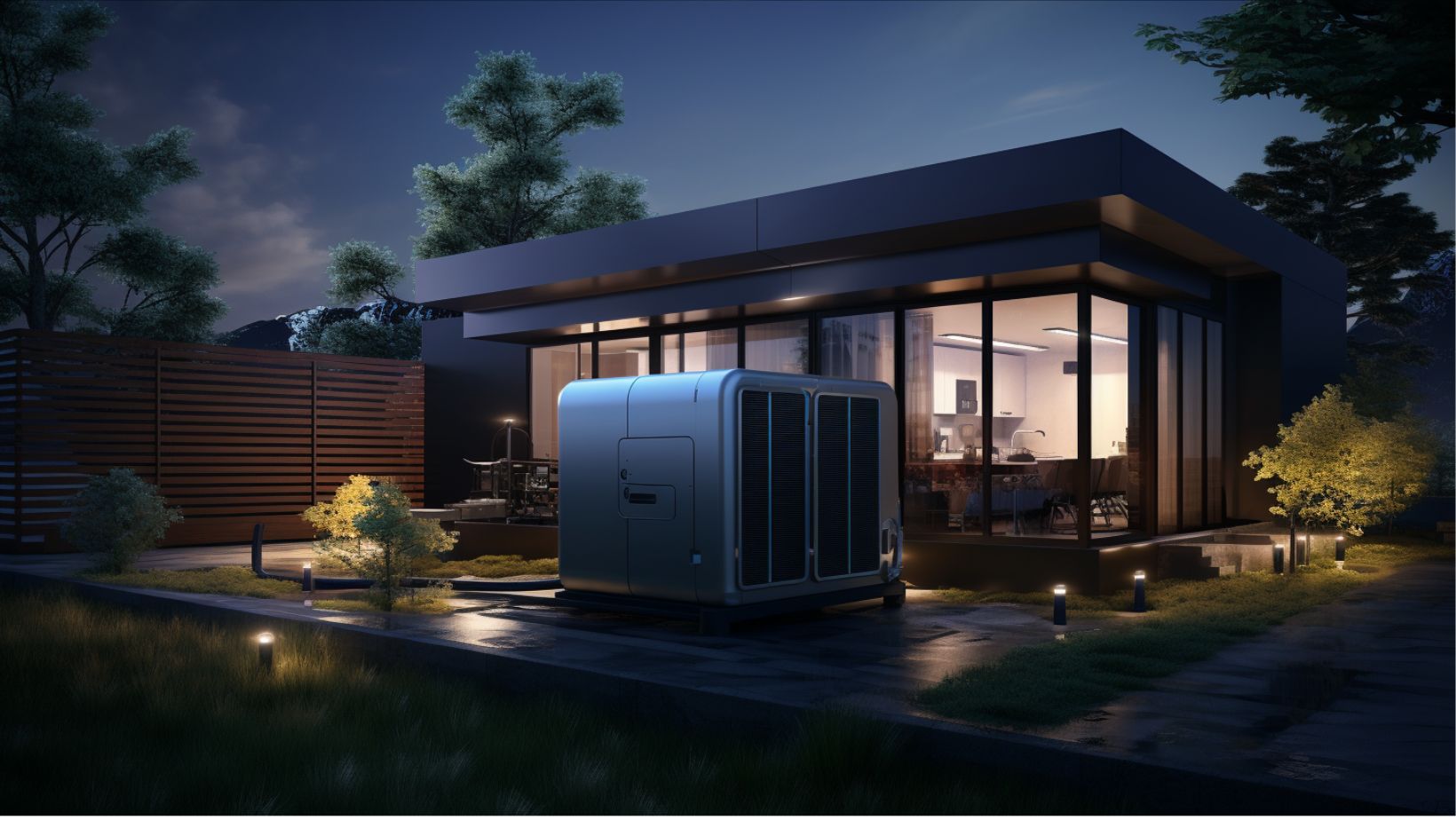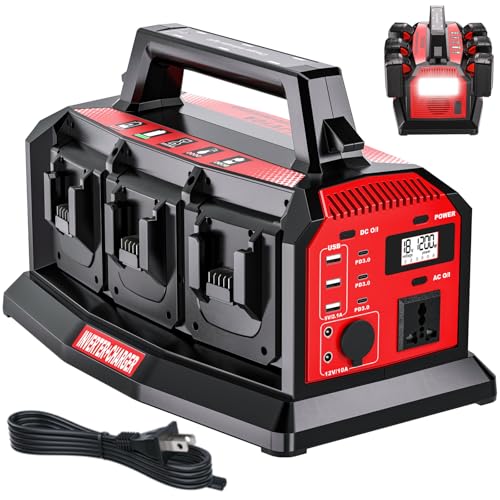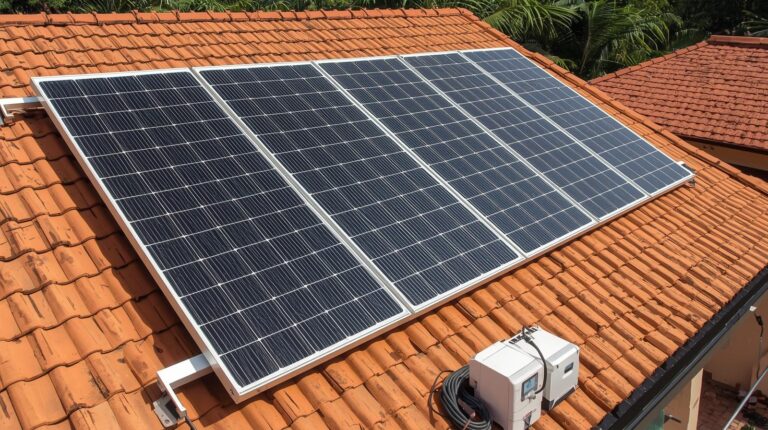Are you wondering which power backup option is best for you? Backup generators and energy storage system both have their advantages, but which one is truly better?
In this article, we will delve into the data and compare the financial advantages, costs, and efficiency of both options. Whether you’re a homeowner or a business owner, this impartial analysis will help you make an informed decision about whether to invest in a backup generator or energy storage system.
Join us as we explore the facts and find the perfect power backup solution for you.
Key Takeaways
- Backup generators have lower efficiency and emit greenhouse gases, while energy storage systems have higher efficiency and a smaller environmental impact.
- Backup generators require regular maintenance and fuel refills, while energy storage systems have minimal maintenance needs.
- Energy storage systems offer more flexibility in installation options compared to backup generators.
- Energy storage systems provide cost savings, energy independence, and lower electricity bills compared to backup generators.
Evaluating Backup Generator and Energy Storage Options
When it comes to evaluating backup generator and energy storage options, you need to consider factors such as cost, reliability, and environmental impact.
To make an informed decision, it’s essential to analyze the efficiency of each option. Backup generators typically have a lower efficiency, as they require fuel combustion to produce electricity. On the other hand, energy storage systems, such as batteries, can store and release electricity with higher efficiency.
Another crucial aspect to consider is the environmental impact. Backup generators emit greenhouse gases and contribute to air pollution, while energy storage systems have a smaller environmental footprint.
Additionally, assessing the maintenance requirements is important. Backup generators often require regular fuel refills and maintenance checks, while energy storage systems have minimal maintenance needs.
Lastly, exploring installation options can help determine which option works best for your specific needs and available space.
Financial Advantages of Energy Storage System
You can save money in the long run by investing in energy storage. Here are some financial benefits to consider:
- Return on investment: Energy storage systems allow you to store excess energy generated during low-demand periods and use it during high-demand periods. This reduces your reliance on the grid and can lead to significant cost savings over time.
- Tax incentives: Many governments offer tax incentives and rebates for installing an energy storage system. These incentives can help offset the upfront costs and improve the return on investment.
- Energy independence: With energy storage system, you can become less reliant on the grid and have a more reliable source of power during outages. This can save you money by avoiding costly disruptions to your business operations.
- Reducing electricity bills: By using stored energy during peak hours, you can reduce your electricity consumption from the grid when rates are higher. This can result in lower monthly electricity bills.
Investing in an energy storage system not only provides financial benefits but also offers energy independence and the ability to reduce electricity bills. With tax incentives available, it’s a wise choice for long-term savings.
Related Post: How Many Solar Batteries Do You Need for Energy Independence?
Comparing Battery Backup Products
Comparing different battery products can help you determine the most suitable option for your energy storage needs. When evaluating battery performance, it’s important to compare battery capacity, explore battery lifespan, assess battery maintenance, and calculate battery efficiency.
Battery capacity refers to the amount of energy the battery can store, and it’s crucial to choose a battery with sufficient capacity to meet your energy requirements. Battery lifespan is another important factor to consider, as longer lifespan means fewer replacements and lower costs in the long run.
Assessing battery maintenance requirements is essential to ensure smooth operation and avoid unexpected downtime. Lastly, calculating battery efficiency will help you determine how effectively the battery converts stored energy into usable power.
Costs for Backup Generator Vs. Energy Storage System
To accurately assess the costs, it’s crucial to carefully compare the expenses associated with backup generators and energy storage options. When considering backup generator costs, you should take into account the initial purchase price, installation fees, and ongoing maintenance and fuel expenses. On the other hand, energy storage options, such as battery backup products, may have higher upfront costs but can provide significant financial advantages in the long run.
Here are a few key factors to consider when assessing the costs of a backup generator vs an energy storage system:
- Lifespan: Energy storage options typically have a longer lifespan compared to backup generators, resulting in potential cost savings over time.
- Efficiency: Energy storage systems are more energy-efficient, allowing for better utilization of stored power and reducing overall costs.
- Fuel costs: Backup generators rely on fuel, which can be expensive and subject to price fluctuations. Energy storage options, on the other hand, don’t require fuel and can help save on ongoing expenses.
- Environmental impact: Energy storage options are typically more environmentally friendly, reducing emissions and minimizing the carbon footprint.
- Incentives and rebates: Some energy storage options may qualify for government incentives and rebates, further enhancing the cost savings.
Calculating Cost Savings With Battery Backup Power
Calculating the cost savings with battery backup power is essential for understanding the financial benefits of this energy storage option. When considering whether to invest in battery backup power, it is important to assess the long-term savings it can provide compared to other alternatives.
To help you make an informed decision, let’s take a look at a comparison table showcasing the potential cost savings of battery backup power:
| Factors | Battery Backup Power | Backup Generators |
|---|---|---|
| Installation | Lower upfront cost | Higher upfront cost |
| Fuel | No fuel required | Fuel dependency during power outage |
| Maintenance | Minimal maintenance | Regular maintenance and fuel costs |
| Efficiency | High energy efficiency | Lower energy efficiency |
As you can see, battery backup power offers several advantages, including lower upfront costs, no fuel requirement, and minimal maintenance. These factors contribute to long-term savings. Moreover, battery backup power aligns with the use of renewable energy, making it a sustainable choice for environmentally-conscious individuals.
By calculating the potential savings and considering the performance of batteries, you can make a wise investment that ensures reliable power during outages while saving money in the long run.
Comparing Battery Backup Systems
If you’ve a larger home, you may want to consider comparing different battery backup systems to find one that’s suitable for your needs. Evaluating battery capacity is crucial to ensure that the system can power your home adequately during outages.
Comparing installation requirements is essential as it determines the ease of setting up the system in your home. Analyzing maintenance needs helps you understand the level of upkeep required to keep the system running smoothly.
Assessing scalability options is important if you plan on expanding your home or adding more appliances in the future. Lastly, exploring technological advancements allows you to stay updated with the latest features and improvements in battery backup systems.
Related Post: Exploring the Best Battery Options for Whole Home Backup System.
Batteries That Require an External Inverter
When evaluating batteries that require an external inverter, you should consider the compatibility of the inverter with your home’s electrical system. This is crucial to ensure that the battery can seamlessly integrate with your existing setup, maximizing its efficiency and performance.
To better understand the factors that affect the compatibility of batteries and inverters, let’s explore them in a table format:
| Factors to Consider | Description |
|---|---|
| Evaluating Efficiency | Assess the energy conversion efficiency of the inverter to ensure minimal loss during the charging and discharging process. |
| Understanding Capacity | Determine the battery’s capacity and its ability to store and deliver energy based on your home’s energy needs. |
| Exploring Compatibility | Verify if the inverter is compatible with your home’s electrical system in terms of voltage, frequency, and wiring. |
| Comparing Performance | Compare the performance of different inverters and batteries based on their power output, response time, and ability to handle peak loads. |
| Assessing Reliability | Consider the reliability of the battery and inverter, including factors like warranty, maintenance requirements, and brand reputation. |
Batteries With Integrated Inverters
To ensure a seamless integration with your home’s electrical system, you’ll want to examine batteries with integrated inverters for compatibility. These batteries offer several advantages over those that require an external inverter:
- Evaluating battery performance: Integrated inverters allow for better monitoring and control of battery performance, ensuring optimal usage and longer lifespan.
- Comparing inverter efficiency: Batteries with integrated inverters often have higher conversion efficiency, maximizing the amount of energy that can be stored and used.
- Exploring installation requirements: Integrated inverters simplify the installation process, reducing the time and effort required for setup.
- Assessing maintenance needs: Batteries with integrated inverters often have built-in diagnostic features, making it easier to identify and address maintenance issues.
- Analyzing system reliability: Integrated inverters enhance overall system reliability by eliminating the need for separate components, minimizing the risk of failure.
Energy Storage System With Integrated Storage Inverter
You’ll find that storage systems with integrated storage inverters offer a convenient and efficient solution for managing your home’s energy needs. These systems provide numerous benefits, including improved storage system efficiency and optimized performance.
Integrated storage inverters combine the functionality of an inverter and a battery storage system, allowing for seamless energy conversion and management. Compared to separate inverters, integrated storage inverters offer higher efficiency and better overall system performance. Inverter integration challenges, such as compatibility issues and complex installation processes, are minimized with integrated systems.
By optimizing storage system performance, these integrated inverters ensure that you can effectively store and use your home’s energy, reducing reliance on the grid and potentially lowering your energy costs. With integrated storage inverters, you can enjoy a more reliable and efficient energy storage system for your home.
Frequently Asked Questions
How Do Backup Generators and Energy Storage Systems Differ in Terms of Environmental Impact?
When comparing the environmental impact of backup generators and energy storage systems, it is important to consider their efficiency, cost, scalability options, and future developments. Let’s delve into these factors.
Can Backup Generators and Energy Storage Systems Be Used Together to Provide a Reliable Power Source?
Backup generators and energy storage systems can be used together to create a reliable power source. By combining their reliability benefits and scalability options, you can ensure uninterrupted power supply. Integration challenges and cost effectiveness can be addressed through technological advancements.
Are There Any Government Incentives or Rebates Available for Installing Backup Generators or Energy Storage Systems?
Government incentives and financial benefits are available for installing backup generators or energy storage systems. These incentives can help offset installation costs and promote the use of renewable energy options. Additionally, tax credits may be available to further incentivize these installations.
What Maintenance and Upkeep Is Required for Backup Generators and Energy Storage Systems?
Maintenance and upkeep for backup generators and energy storage systems vary. Generators need regular fuel and oil changes, while storage systems require battery maintenance. Upkeep costs depend on usage. Performance, efficiency, and long-term reliability differ between the two.
What Are the Typical Lifespans of Backup Generators and Energy Storage Systems?
The lifespan of backup generators and energy storage systems can vary depending on several factors. Regular maintenance is essential for both, and costs can be a consideration. Efficiency may also differ between the two.
Conclusion
In the battle between backup generators and energy storage system, it seems that the winner is clear. While backup generators may provide immediate power during outages, energy storage systems offer a multitude of financial advantages and cost savings in the long run.
With advancements in technology, battery backup systems are becoming more efficient and cost-effective, making them a viable option for homes of all sizes. So, if you’re looking for a reliable and economical solution, energy storage seems to be the way to go.








